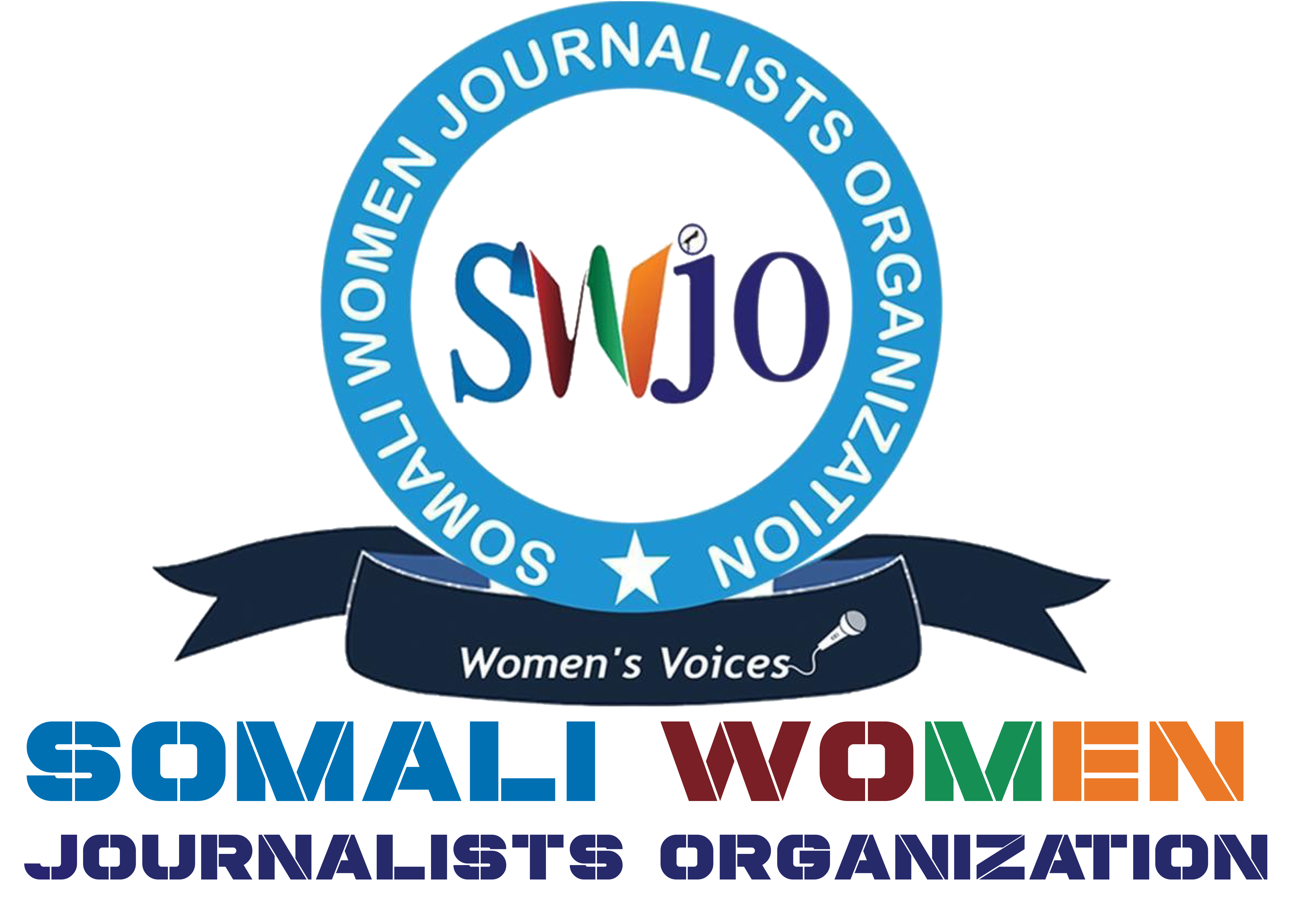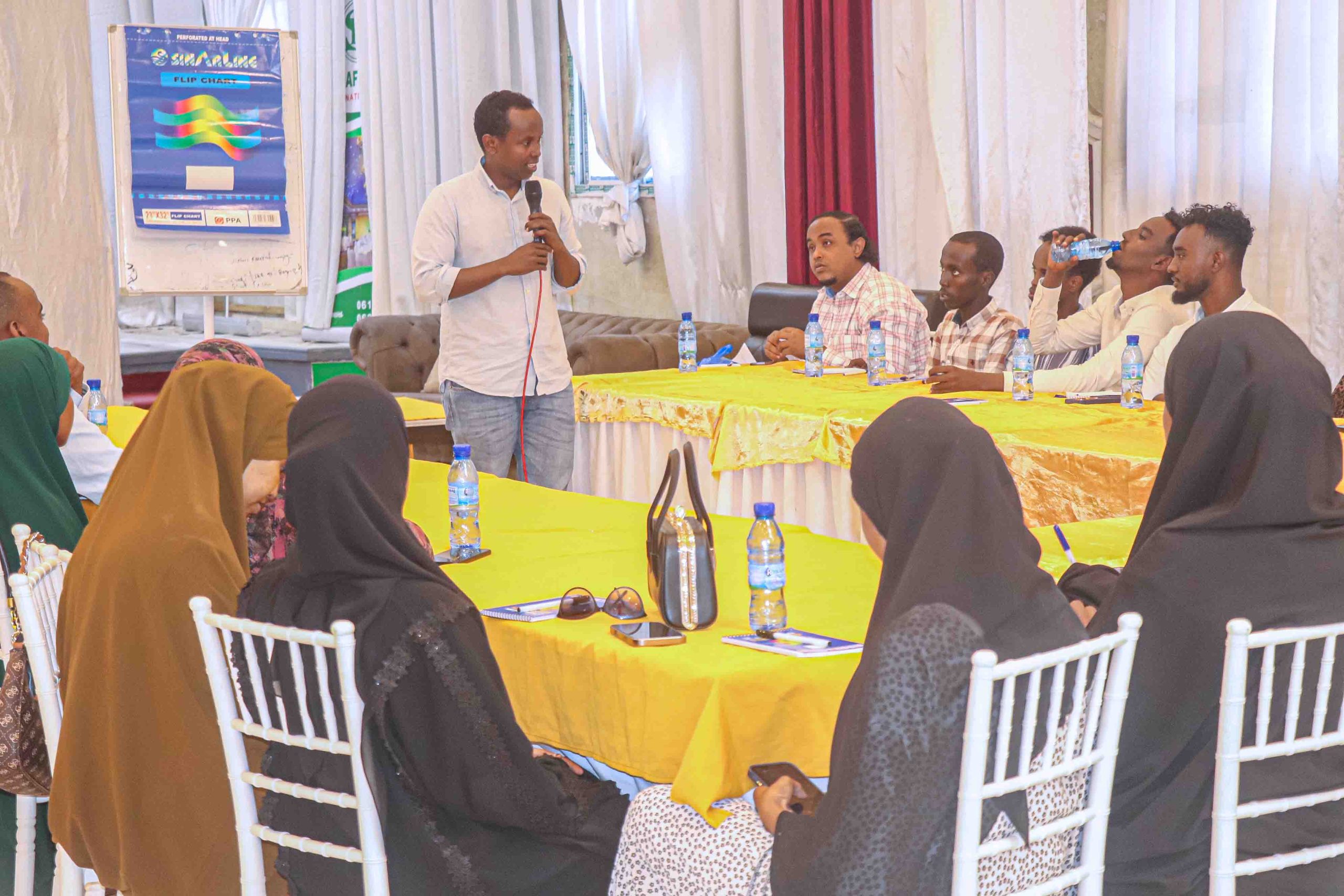
Mogadishu, Somalia – 10 July 2025
A three-day capacity-building workshop on “Enhancing Gender Balance in Media Content” concluded today in Mogadishu, bringing together 28 Somali journalists, including reporters, radio/TV producers, news anchors, and content creators from various media houses across the country.
The workshop, organized by the Somali Women Journalists Organization (SWJO) in partnership with the International Media Support (IMS), aimed to strengthen inclusive reporting practices and promote institutional reform within Somali newsrooms.
Over the course of three days, participants critically examined how gender is represented in media, reflected on the internal structures of their own newsrooms, and explored tools to improve editorial balance and fairness in sourcing and storytelling.
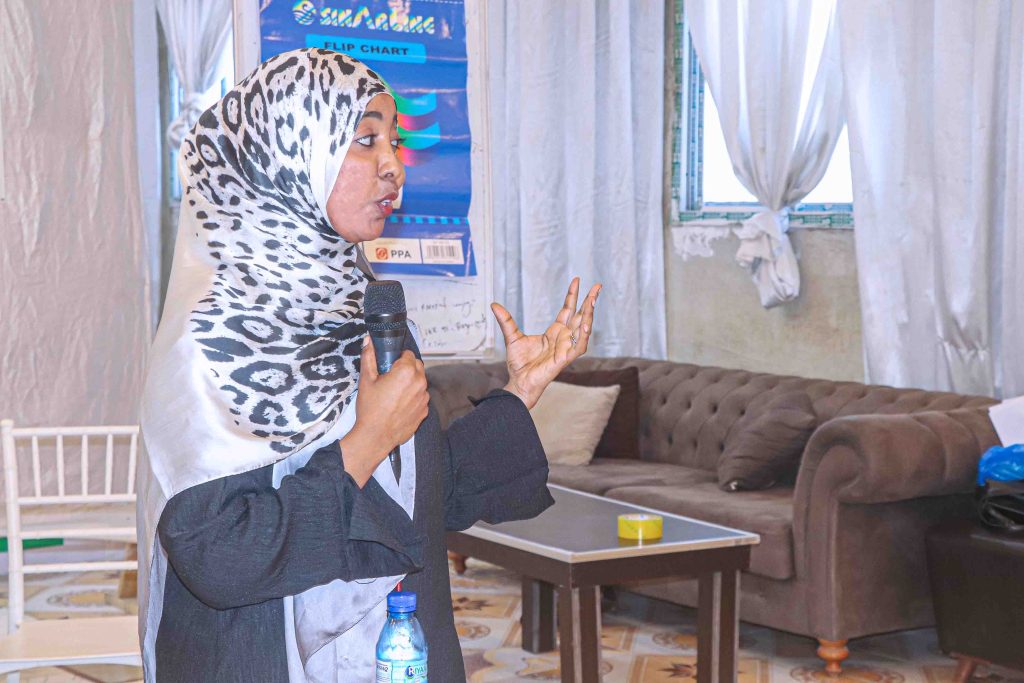
“We designed this training to go beyond the basics,” said Farhia Kheyre, Chairperson of SWJO.
“It’s not just about talking to women — it’s about challenging the systems, routines, and newsroom cultures that hold them back. This workshop gave participants the space to think critically about their own power as content creators, and what needs to shift to make Somali media more inclusive, fair, and representative.”
Why Gender Balance Matters
The opening day focused on the rationale for gender balance in media, highlighting how inclusive content can enhance audience trust, widen reach, and reflect the realities of Somali society. Participants reviewed local data on gender representation in media content and discussed common editorial habits that reinforce bias — often unintentionally.
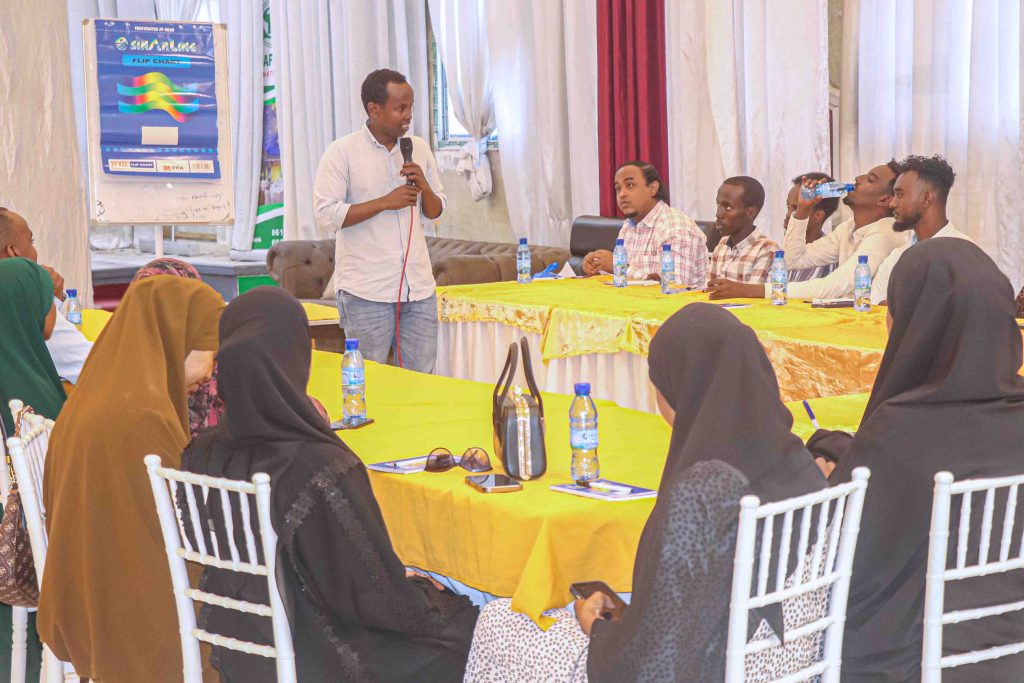
Practical Tools for Inclusive Journalism
The second day was dedicated to equipping journalists with actionable tools for inclusive sourcing, script review, and gender-aware storytelling. Participants reworked sample stories and scripts, practicing how to identify bias, improve framing, and broaden the diversity of voices featured in media output.
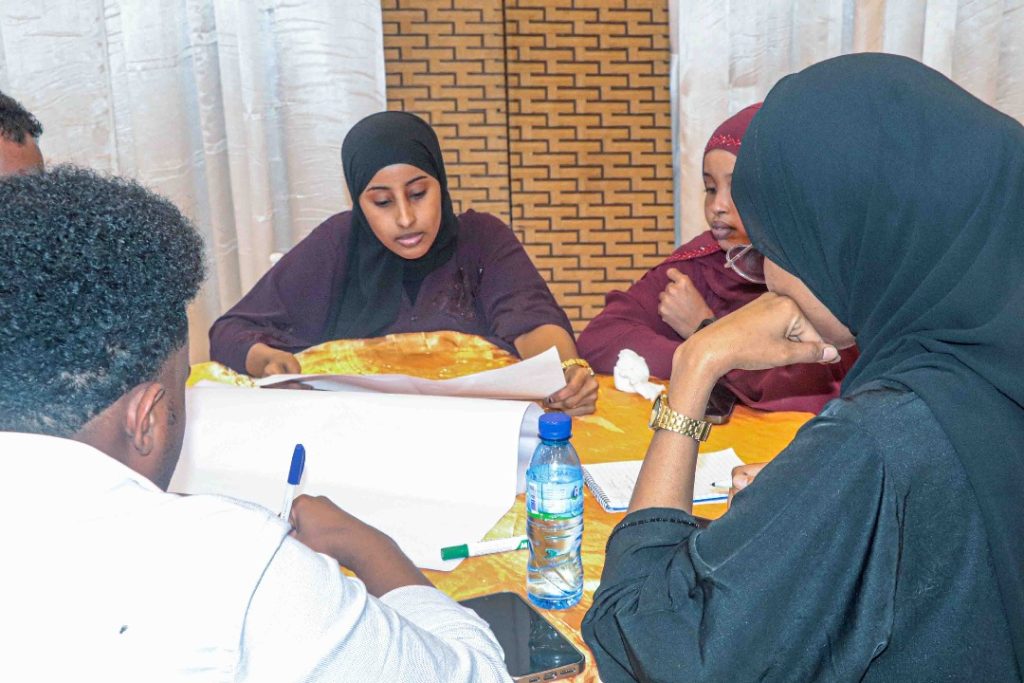
Institutional Change and Internal Reflection
The final day addressed deeper institutional and structural barriers to gender inclusion. Participants acknowledged the challenges of working in fast-paced, resource-constrained environments dominated by breaking news and social media visibility.
Discussions also highlighted that many women in Somali media are often confined to studio-based roles, while original reporting and field assignments are disproportionately given to male colleagues — a practice shaped by both logistical limitations (e.g. lack of transport or safety equipment) and ingrained social norms.
The workshop concluded with a facilitated reflection on how individual journalists — regardless of role — can influence change from within: advocating for fair assignment, inclusive editorial planning, and improved representation of women not just as subjects, but as experts and leaders in their own right.
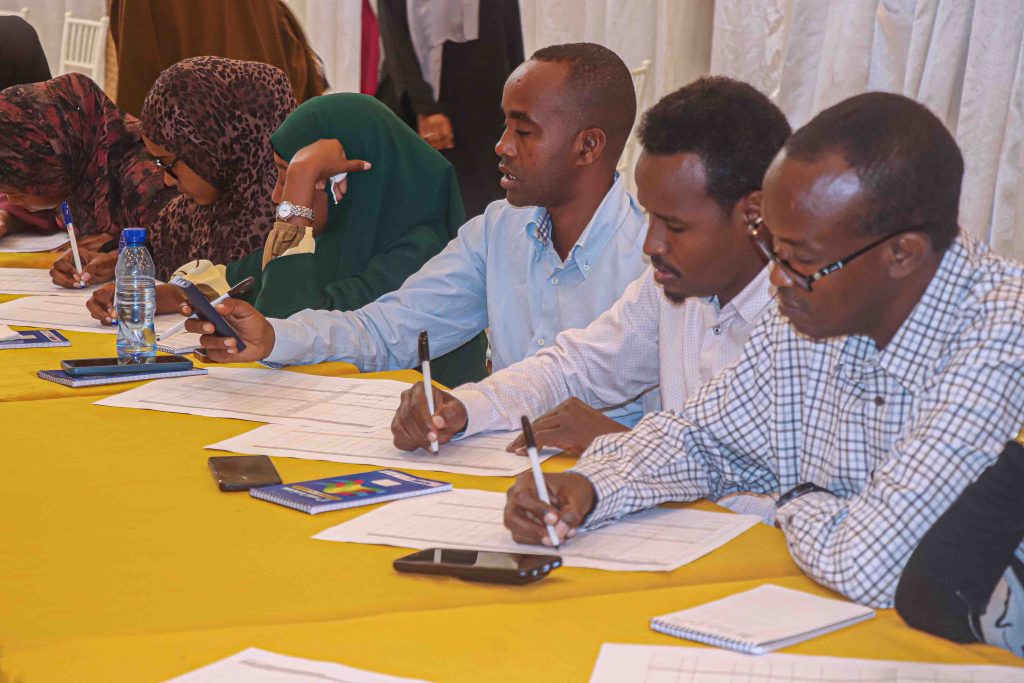
The workshop is part of SWJO’s broader advocacy and capacity-building efforts to promote gender equality in Somali media. Follow-up activities are planned to provide continued support to participants and media outlets, including mentoring, resource tools, and ongoing dialogue on editorial reform.
